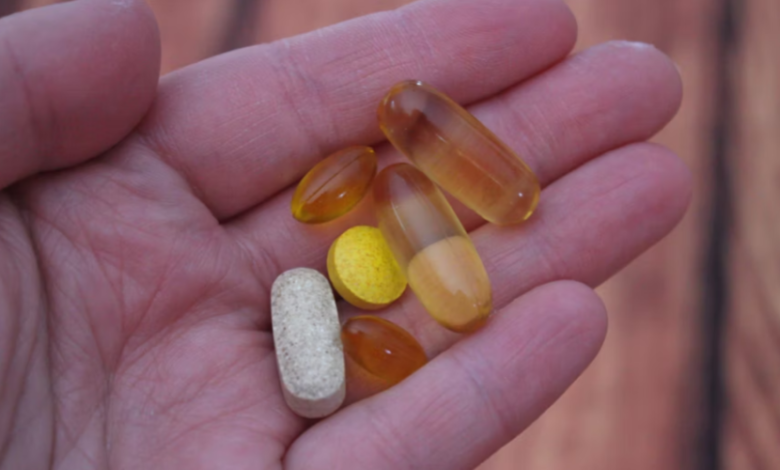Nutritional Deficiencies in India: Which Supplements Does Science Support?

The situation has become quite alarming, really. Nearly 70% of Indian children under five deal with anaemia. Approximately half the population falls short of the recommended vitamin B12 intake. Iron deficiency hits 3 out of 4 women during their reproductive years.
These figures represent more than just medical statistics—they’re early warnings that bodies across the country are struggling. The traditional Indian diet, despite being rich in grains and vegetables, creates surprising nutritional gaps. When energy levels crash, hair starts thinning, or infections become frequent, searching for the best nutrition & supplements India offers becomes rather urgent.
What’s particularly troubling is how most people remain unaware of their deficiencies until health problems become serious. The best nutrition & supplements India’s researchers recommend might prevent these issues, though knowing what to look for makes all the difference.
The Hidden Health Crisis
Vitamin D deficiency touches about 80% of urban Indians. This might sound overstated, but doctors witness the fallout regularly—bone pain, muscle weakness, constant infections. The irony runs deep: a sun-drenched country where modern lifestyles keep people indoors.
Studies from the Indian Council of Medical Research suggest most adults require 1000-2000 IU of vitamin D3 daily. Traditional Indian foods contain virtually no vitamin D. Fortified milk offers some help, though many adults can’t tolerate lactose anyway.
Iron deficiency creates its own set of problems. Women lose iron through menstruation, pregnancy, and breastfeeding. Vegetarian diets, widespread in India, provide non-heme iron that bodies absorb poorly. The outcome? Exhaustion so profound it resembles chronic illness.
The mental health angle gets overlooked too often. Low iron levels contribute to restless leg syndrome, brain fog, and that persistent feeling of being cold. These symptoms creep up gradually, making people think they’re just getting older or more stressed.
What Research Reveals About Indian Deficiencies
Clinical investigations highlight four major deficiencies affecting Indian populations:
Vitamin B12 deficiency strikes 47% of urban Indians. Even meat-eaters struggle because cooking destroys much of the vitamin. The consequences range from nerve damage to depression and cognitive decline. Methylcobalamin supplements demonstrate better absorption compared to cyanocobalamin.
Folate deficiency appears in roughly 1 in 3 women of childbearing age. This leads to birth defects and pregnancy complications. Synthetic folic acid supplements actually outperform natural folate from foods.
Zinc deficiency undermines immune function and wound healing. Indian diets high in phytates—from grains and legumes—block zinc absorption. Children show the most striking improvements with zinc supplementation.
Magnesium deficiency disrupts sleep, muscle function, and heart rhythm. Stress depletes magnesium rapidly, making urban Indians especially vulnerable.
The calcium situation deserves special mention. Despite consuming dairy regularly, many Indians still develop osteoporosis. The problem lies in vitamin D deficiency, which prevents calcium absorption. Without adequate vitamin D, all the milk and yoghurt in the world won’t build strong bones.
The Supplement Dilemma
Supplements don’t all work identically. Bioavailability trumps dosage every time. Cheap calcium carbonate requires stomach acid for absorption—problematic for older adults with reduced acid production. Calcium citrate performs better but costs more.
Timing influences absorption significantly. Iron supplements work best on empty stomachs but trigger nausea. Taking them with vitamin C boosts absorption by 300%. Tea or coffee within two hours blocks iron uptake through tannins.
Quality concerns run deeper than most people suspect. A 2019 study discovered 20% of Indian supplements contained heavy metals or incorrect dosages. Third-party testing becomes essential rather than optional.
Many people make the mistake of taking everything at once. Calcium blocks iron absorption. Zinc competes with copper. Taking supplements strategically throughout the day maximises their benefits.
Traditional Foods Versus Modern Supplements
Indian cuisine historically prevented many deficiencies. Sesame seeds supplied calcium. Jaggery provided iron. Ghee delivered fat-soluble vitamins. Modern food processing removes these nutrients.
The issue isn’t whether traditional foods are superior—they clearly are. The real question is whether modern Indians consume enough traditional foods to meet nutritional requirements. Urban diets heavy in processed foods suggest not.
Certain combinations work together beautifully. Turmeric with black pepper increases curcumin absorption by 2000%. Traditional Indian cooking naturally included these pairings. Modern supplements often overlook these interactions.
Fermented foods like idli and dosa provide B vitamins naturally. Yet urban Indians increasingly rely on packaged foods that lack these nutrients. The shift from traditional food preparation methods has created nutritional gaps that previous generations didn’t face.
Why Doctors Sometimes Hesitate
Medical training emphasises treating disease rather than preventing deficiency. Many doctors view supplements sceptically because pharmaceutical companies don’t promote them aggressively. The profit margins are simply too low.
Testing for deficiencies isn’t routine either. Vitamin D testing costs extra. B12 levels can appear normal even with functional deficiency. Standard blood tests miss subclinical deficiencies that cause symptoms.
See Also: Why Private HIV Testing Dubai Is the Smart Choice for Your Health Privacy
The Final Word
Nutritional deficiencies in India aren’t abstract problems—they’re immediate health threats. Science supports targeted supplementation for specific deficiencies common in Indian populations.
Quality matters more than price. Third-party testing ensures purity and potency. Starting with basic deficiencies like vitamin D, B12, and iron makes sense before adding specialised supplements.
Bodies can’t function optimally without adequate nutrition. Traditional foods provide the foundation, but targeted supplements fill the gaps modern lifestyles create.




